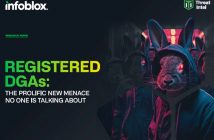Second annual international survey of information security professionals finds global confidence in ability to accurately assess cyber risk dropped 12 percentage points over 2016
 Tenable Network Security has released findings from the 2017 Global Cybersecurity Assurance Report Card (http://www.tenable.com/lp/2017-global-cybersecurity-assurance-report-card/) in which the world’s information security practitioners gave global cybersecurity readiness a “C-” average with an overall score of 70 percent.
Tenable Network Security has released findings from the 2017 Global Cybersecurity Assurance Report Card (http://www.tenable.com/lp/2017-global-cybersecurity-assurance-report-card/) in which the world’s information security practitioners gave global cybersecurity readiness a “C-” average with an overall score of 70 percent.
The 2017 Global Cybersecurity Assurance Report Card solicited insights from 700 security practitioners in nine countries and across seven industry verticals to a global index score reflecting overall confidence that the world’s cyber defenses are meeting expectations.
According to this year’s data, global cybersecurity confidence fell six points over 2016 to earn an overall score of 70 percent — a “C-” on the report card.
The overall decline in confidence is the result of a 12-point drop in the 2017 Risk Assessment Index, which measured the ability of respondents to assess cyber risk across 11 key components of the enterprise information technology (IT) landscape.
For the second straight year, practitioners cited the “overwhelming cyber threat environment” as the single biggest challenge facing IT security professionals today, followed closely by “low security awareness among employees” and “lack of network visibility (BYOD, shadow IT).”
“Today’s network is constantly changing — mobile devices, cloud, IoT, web apps, containers, virtual machines — and the data indicate that a lot of organisations lack the visibility they need to feel confident in their security posture,” said Cris Thomas, strategist, Tenable Network Security. “It’s pretty clear that newer technologies like DevOps and containers contributed to driving the overall score down, but the real story isn’t just one or two things that need improvement, it’s that everything needs improvement.”
2017 Key Global Findings
- Cloud Darkening – Cloud software as a service (SaaS) and infrastructure as a service (IaaS) were two of the lowest scoring Risk Assessment areas in the 2016 report. SaaS and IaaS were combined with platform as a service (PaaS) for the 2017 survey and the new “cloud environments” component scored 60 percent (D-), a seven point drop compared to last year’s average for IaaS and SaaS.
- A Mobile Morass – Identified alongside IaaS and SaaS in last year’s report as one of the biggest enterprise security weaknesses, Risk Assessment for mobile devices dropped eight points from 65 percent (D) to 57 percent (F).
- New Challenges Emerge – Two new IT components were introduced for 2017 — containerisation platforms and DevOps environments.
DevOps is transforming the way software teams collaborate through increased consistency and automation, but it also introduces new security concerns. In fact, respondents reported just 57 percent confidence in the ability to assess security during the DevOps process.
At the same time, adoption of containerization technologies like Docker is exploding as organisations look to accelerate innovation cycles and reduce time-to-market. Unfortunately, only 52 percent of respondents felt that their organisation had a handle on how best to assess risks within container environments.
2017 Overall Cybersecurity Assurance Report Cards by Country
1. India: B (84 percent)
2. United States: C+ (78 percent)
3. Canada: C (75 percent)
4. France: C (74 percent)
5. Australia: C- (71 percent)
6. United Kingdom: D (66 percent)
7. Singapore: D (64 percent)
8. Germany: D- (62 percent)
9. Japan: F (48 percent)
2017 Overall Cybersecurity Assurance Report Cards by Industry
1. Retail: C (76 percent)
2. Financial Services: C- (72 percent)
3. Manufacturing: C- (72 percent)
4. Telecom: C- (70 percent)
5. Health Care: D (65 percent)
6. Education: D (64 percent)
7. Government: D (63 percent)
Australia is the only country to achieve a higher overall score in this year’s report. Although its Risk Assessment score dropped five points to 64% (D), its Security Assurance score rose to 78% (C+) — the most improved score of any country or industry. Its overall score was 71%.
Matt Brigham, ANZ Regional Sales Manager, Tenable Network Security, said, “The research would indicate that while Australian security practitioners have made some progress this year in their overall risk and compliance initiatives, the research shows that there are critical gaps in assessing DevOps environments, physical servers in datacentres and mobile devices.
“Organisations now have IT infrastructures that incorporate mobile devices, remote access and usage of cloud-based resources and services. Ensuring effective security in this environment may require a different approach for many in 2017, one that eliminates security blind spots and reduces overall attack surfaces, while prioritising threats so the IT team is not overwhelmed.”
Original research for the 2017 Global Cybersecurity Assurance Report Card was conducted by CyberEdge Group, a premier research and marketing firm serving the security industry’s top vendors. To view or download the full report, visit: http://www.tenable.com/lp/2017-global-cybersecurity-assurance-report-card/
Click to view an infographic.
About the 2017 Global Cybersecurity Assurance Report Card
Tenable surveyed 700 IT security professionals employed by organizations with 1,000+ employees in September 2016. A 12-question web-based survey asked respondents to provide a rating on a five-point scale. By adding together the two most-favourable responses (e.g., strongly agree + somewhat agree) for each question, and then averaging together associated responses, two summary indices were derived. The Risk Assessment Index measured an organisation’s ability to assess cybersecurity risks across 10 key components of enterprise IT infrastructure. The Security Assurance Index measured an organisation’s ability to mitigate threats by investing in security infrastructure fueled by executive and board level commitment. The index scores were combined to produce the overall report card score for each country and industry. For more information visit http://www.tenable.com/lp/2017-global-cybersecurity-assurance-report-card/
About Tenable Network Security
Tenable Network Security transforms security technology for the business needs of tomorrow through comprehensive solutions that provide continuous visibility and critical context, enabling decisive actions to protect your organisation. Tenable eliminates blind spots, prioritises threats, and reduces exposure and loss. With more than one million users and more than 20,000 enterprise customers worldwide, organizations trust Tenable for proven security innovation. Tenable’s customers range from Fortune Global 500 companies, to the U.S. Department of Defense, to mid-sized and small businesses in all sectors, including finance, government, healthcare, higher education, retail and energy. Transform security with Tenable, the creators of Nessus® and leaders in continuous monitoring, by visiting http://www.tenable.com.





